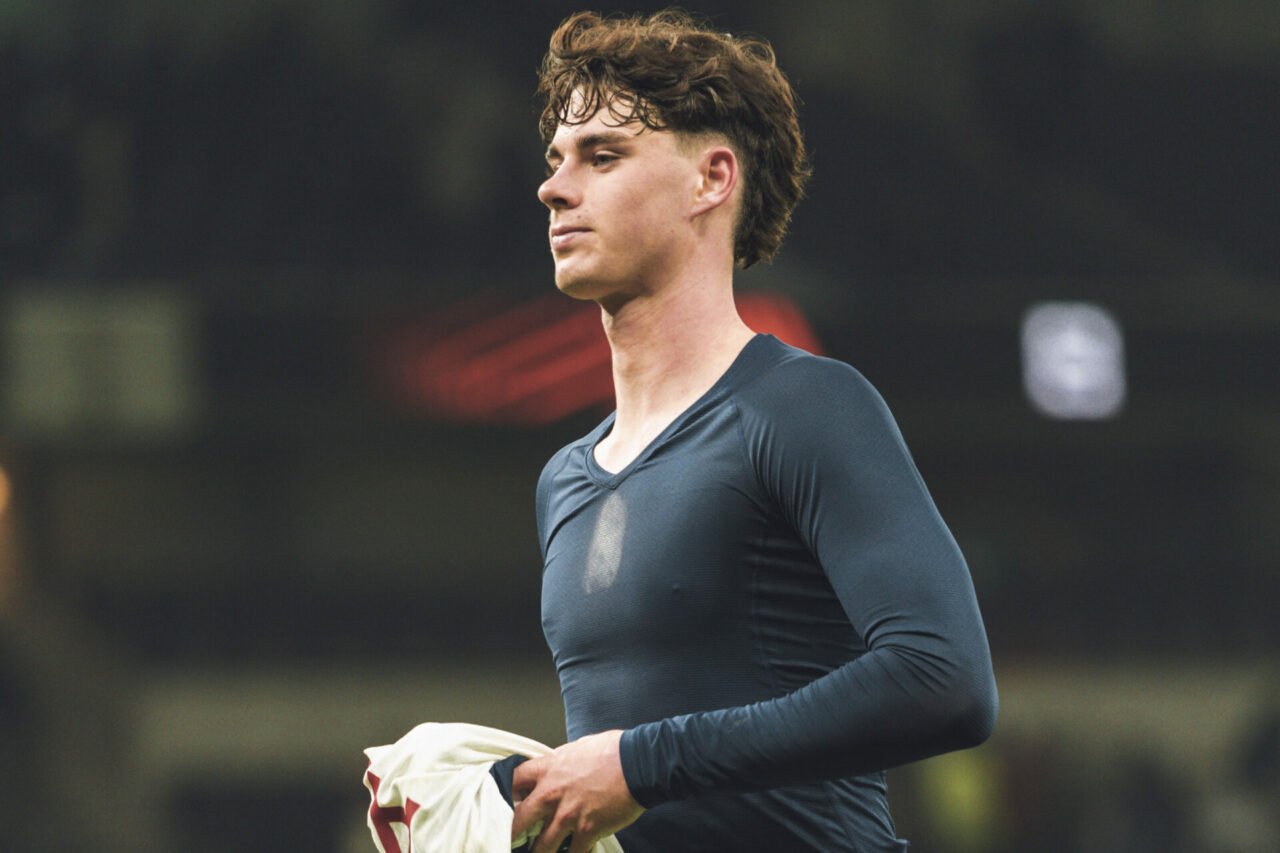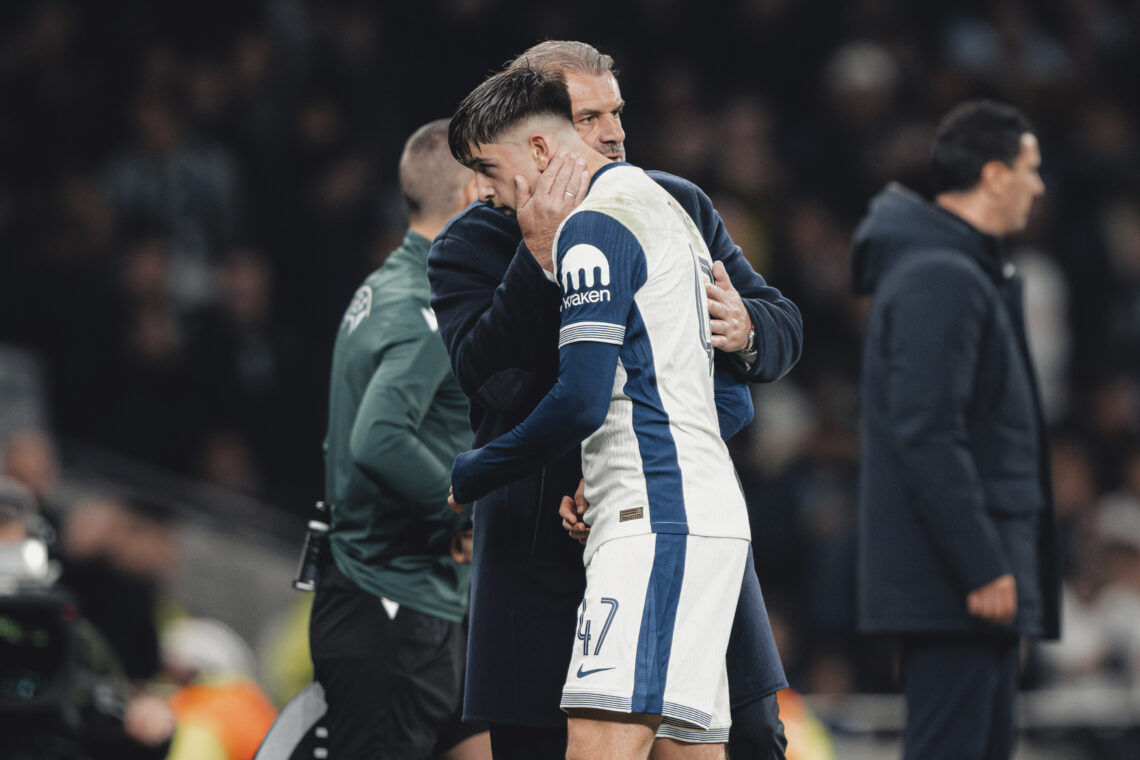Tottenham’s new strategy of prioritising youth signings has drawn comparisons to Chelsea’s recent recruitment drive, but Spurs boss Ange Postecoglou has offered a reality check on what it takes to build a competitive team from young talent alone.

Spurs show bold youth investment
In the summer transfer window, Tottenham Hotspur made a decisive shift in their recruitment strategy, focusing heavily on securing young talent with the potential to shape the club’s future.
This marked a departure from their previous approach, which placed a greater emphasis on experienced players.
Among the new arrivals were Archie Gray, Lucas Bergvall, Wilson Odobert, and Yang Min-hyeok, all of whom cost the club a combined £80 million. Additionally, Croatian prodigy Luka Vuskovic is set to join next summer, further bolstering the club’s youthful ranks.
This philosophy is a significant change from the summer of 2023, when Spurs only brought in two players aged 18 and 19—Alejo Véliz and Ashley Phillips.
However, both players are currently out on loan, with Véliz at Espanyol and Phillips at Stoke City, highlighting the club’s previous reluctance to immediately integrate young talent into the first team.
However, this season, the majority of the Lilywhites’ young signings are at the club as they serve as squad options who feature in Europa League games and cup competitions.
This shift in approach by the North London side mirrors the approach of their London rivals, Chelsea, who have been aggressive in their pursuit of young players.
Under Enzo Maresca, Chelsea’s recruitment strategy has been characterised by volume, bringing in a host of promising players with the ambition of dominating in the years to come.
Maresca has confidently predicted Chelsea’s youth project will pay dividends, but Postecoglou was cautious when asked if Spurs could expect similar success.

Ange Postecoglou: Spurs youth-led approach differs from Chelsea
Ange Postecoglou, in a recent interview with football.london, provided a nuanced perspective on Spurs’ youth strategy, highlighting the inherent risks and rewards of building a squad predominantly from young players.
He acknowledged the theoretical benefits of such an approach but emphasised the practical challenges.
He said: “The theory, yes. The reality… you’ve also got to look at… there’s a relevance to expenditure as well. They’ve got some serious talent there.
“But whether they all fulfil their potential is the unknown with all young players. So I think that’s why most clubs don’t go all young because they feel you need some experience or some guiding through that process of players developing.
“In theory, it’s probably the way to go I believe when you’re building a side. But it’s not always… unless you have a sheer volume of players, which Chelsea do, if two or three don’t make it through, you’ve got enough there.
“I don’t think we’re in the same boat in terms of numbers. With us, it would mean all the ones we’ve signed will all end up fulfilling our potential.
“That’s the bit of the unknown. I think we’re probably a bit different even though the underlying premise of building from youth is there. I think they’re a little bit different in the way they’ve gone about it.”
Postecoglou’s comments highlight a critical difference between the two clubs: while Chelsea can afford to take risks due to their extensive pool of young players, Spurs must rely on a higher success rate among their recruits. This, he suggests, places added pressure on Tottenham’s youthful cohort to develop quickly and consistently.

Is the youth-first approach the right move?
Personally, I believe Tottenham’s youth-first approach is premature. While there is undeniable talent in the likes of Gray and Bergvall, relying on such players at this stage could prove costly.
A more balanced strategy, integrating experienced professionals alongside promising youngsters, would offer a sturdier foundation for sustained success.
Postecoglou’s early achievements deserved to be built upon with established signings, setting the stage for a gradual transition to a youth-driven model once Spurs consistently compete for a top-four finish.
As it stands, the gamble on youth is ambitious but fraught with uncertainty, and only time will tell if Tottenham’s bold strategy will pay off or if it will leave them playing catch-up to their rivals.
